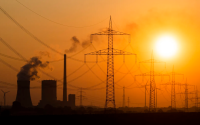4 July 2005Tania Branigan, Luke Harding and Owen Gibson
George Bush sounds a warning today to those hoping for a significant deal on Africa and climate change at Wednesday's G8 summit, making clear that when he arrives at Gleneagles he will dedicate his efforts to putting America's interests first.
The president will adopt a stance starkly at odds with the idealism professed by the performers at Saturday's Live 8 concerts around the world and their television audience of 2 billion.
"I go to the G8 not really trying to make [Tony Blair] look bad or good; but I go to the G8 with an agenda that I think is best for our country."
Further difficulties for the G8 negotiations came as Gerhard Schröder, the German chancellor, expressed opposition to Britain's plans to double aid over the next five years.
Berlin is refusing to increase its aid budget for Africa from €1.8bn (£1.2bn) a year to €2.4bn - as Mr Blair hoped - and has expressed scepticism over a proposed tax on air tickets to be earmarked for aid.
A Downing Street spokeswoman said: "Let's be judged on the outcome of G8 rather than anything which happens beforehand. We are still making progress."
Jacques Chirac, the French president, sounded a slightly more promising note yesterday by saying G8 leaders were "heading towards" an agreement on climate change after a meeting with Mr Schröder and Vladimir Putin in Svetlogorsk, Russia. He did not, however, say what the deal was.
Bob Geldof, the Live 8 organiser, and stars including Sir Paul McCartney, have urged the 205,000 who attended the concert in Hyde Park, London, to step up the pressure by attending the mass demonstration in Edinburgh on Wednesday. "For God's sake, take this seriously. Don't behave normally. Don't look for compromises. Be great," they said, in a message to G8 leaders. They declared the concerts, which took place in every G8 country, an unqualified success.
Gordon Brown described Live 8 supporters and the 250,000 Make Poverty History campaigners who marched through Edinburgh as "Britain at its best" yesterday, telling the BBC they were proof that people could have power if they made their views felt.
In an interview for ITV1's Tonight With Trevor McDonald, recorded last week and to be screened this evening, Mr Bush accepted that climate change is "a significant, long-term issue that we've got to deal with" and is man-made "to a certain extent". But asked if other countries can expect US support for a binding commitment to cut greenhouse gas emissions, he replied: "If this looks like Kyoto, the answer is no. [Kyoto] would have destroyed our economy."
He sought to focus on clean technologies instead.
Guy Thompson of the Green Alliance described it as a rebuff to meaningful action on climate change, while Catherine Pearce of Friends of the Earth International said: "As much as we want to see [a deal] happening, it is clear that the US just isn't moving."
Asked if he would make a special effort to help Mr Blair in return for his support over Iraq, Mr Bush replied: "I really don't view our relationship as one of quid pro quo.
"Tony Blair made decisions on what he thought was best for keeping the peace and winning the war on terror, as I did."
Mr Bush also said that the rich world had an "obligation" to make trade fairer, but made it clear he would not slash farming subsidies unless the European Union did the same.
He said America was "leading the world when it comes to helping Africa", despite the fact that it gives only 0.2% of its GDP in overseas aid - well below the UN's 0.7% target.
Oxfam said the development deals agreed to date fell well short of what was required.
"Given the events of this weekend, there are millions of people expecting G8 to come up with something extraordinary, and this isn't it," said Oxfam's Max Lawson.
With British-German relations at an all-time low after the failed EU budget summit, there is little incentive for a wounded Mr Schröder to support the prime minister next week. His officials blame Mr Blair for wrecking the budget deal and accuse him of exploiting the summit to improve his public image at home.
http://www.guardian.co.uk/print/0,3858,5230584-111488,00.html






